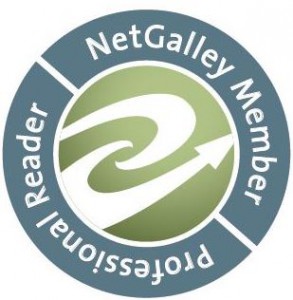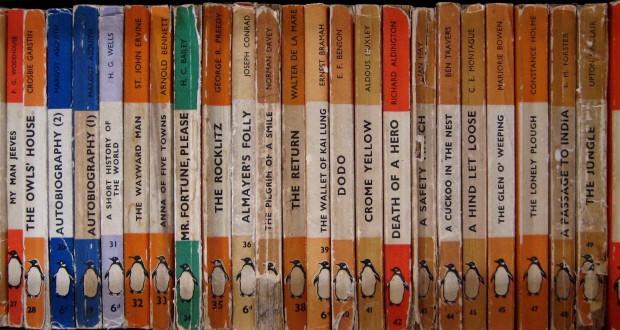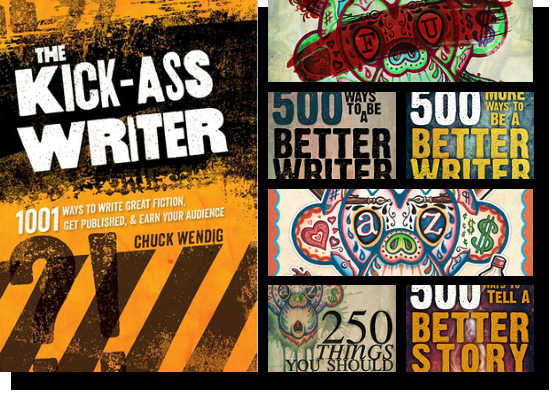Part of developing your writing craft is reading… A lot. While practice is one thing, exposure to different styles and examples of writing is another. If you never bother to read a novel, how could you possibly write one yourself? If you want to write fantasy, read fantasy. If you want to write a murder mystery, read them! While this might sound like the bleedin’ obvious, it isn’t only about reading. It’s about reading critically.
 If you can’t spot where things go wrong in other people’s work, how will you spot them in your own? It isn’t just enough to say ‘I loved that book’ or ‘That book was terrible’, you need to be able to say why. Once you can put your finger on why you loved/hated/felt indifferently towards a book, you are better able to spot the techniques at work and how to use them effectively in your own work. If you’ve done writing courses or researched/read your fair share of writing tips and advice, keep an eye out for examples of the techniques in action in other writers’ works – as well as when they don’t follow best practice. If what they are doing differs from typical advice, does it work? Why? Why not?
If you can’t spot where things go wrong in other people’s work, how will you spot them in your own? It isn’t just enough to say ‘I loved that book’ or ‘That book was terrible’, you need to be able to say why. Once you can put your finger on why you loved/hated/felt indifferently towards a book, you are better able to spot the techniques at work and how to use them effectively in your own work. If you’ve done writing courses or researched/read your fair share of writing tips and advice, keep an eye out for examples of the techniques in action in other writers’ works – as well as when they don’t follow best practice. If what they are doing differs from typical advice, does it work? Why? Why not?
But as writers, when it comes to writing reviews, it’s hard not to think about the potential impact on the author who reads the review. We all know how personal and precious our own writing is, so how dare we review anyone else’s? If we don’t like the book, should we even write a review? At the end of the day, good and bad book reviews are a fact of writing. Perhaps if you learn to understand the art of criticism, you might find it easier to absorb a negative review when you do receive one (it really is inevitable – you’ll never be able to please everyone). And above all else, all any of us really have is our integrity – so it is always best to be honest.
Learning from what you read
 When reading a book for review there are a number of questions you need to ask, but most importantly, just ask ‘Why?’ Channel your inner toddler. Every time any character does something, ask ‘Why?’ When you read a piece of world building, ask ‘Why?’ You think I’m being too derivative? If there is ever any point in a book where you (the reader) is left asking ‘Why?’ without a satisfactory answer, there’s a problem. It will trip readers up who are far less discerning than you are. The problem is, with less invested readers, they won’t know why they’re having trouble with the book and will likely give up, put it down, and move on to something new.
When reading a book for review there are a number of questions you need to ask, but most importantly, just ask ‘Why?’ Channel your inner toddler. Every time any character does something, ask ‘Why?’ When you read a piece of world building, ask ‘Why?’ You think I’m being too derivative? If there is ever any point in a book where you (the reader) is left asking ‘Why?’ without a satisfactory answer, there’s a problem. It will trip readers up who are far less discerning than you are. The problem is, with less invested readers, they won’t know why they’re having trouble with the book and will likely give up, put it down, and move on to something new.
The more you see these flaws in other books you read, the more likely you are to pick it up in your own editing process. The more practiced you are at reading critically; the more naturally it will come for you to critically read your own work.
Should you review books you didn’t like?
 It is actually great practice to write out your thoughts on books you read – and reviews also help authors get noticed. But as a writer, are you more likely to be concerned about the writer’s feelings when you review a book? Should you be? Being a writer myself, I often find it difficult to write reviews of books I didn’t enjoy. I think to myself, ‘If this was a review of my book, how would it make me feel?’ Well, I think most of my reviews have the potential to make the authors upset. So how can I live with myself?
It is actually great practice to write out your thoughts on books you read – and reviews also help authors get noticed. But as a writer, are you more likely to be concerned about the writer’s feelings when you review a book? Should you be? Being a writer myself, I often find it difficult to write reviews of books I didn’t enjoy. I think to myself, ‘If this was a review of my book, how would it make me feel?’ Well, I think most of my reviews have the potential to make the authors upset. So how can I live with myself?
I like to think I still live by the advice I had drilled into me as a child – if you have nothing nice to say, say nothing at all. But reviews are important and I am never going to like every book I read. At the end of the day, my ‘good’ reviews are only worth a damn if I’m able to look at books with a critical eye. What would be the point of receiving a good review from someone who only ever wrote good reviews? I try to be fair but honest, critical but constructive… up to a point. If I really, really didn’t like a book at least I’ll give you solid reasons as to why.
At the end of the day, all we really have is our honest and integrity. If you are a reviewer that can easily be ‘bought’ for a good review, your reviews mean nothing. Try to remember to be balanced in your reviews – where you can – if you point out what could have been done better, also mention where things went well. But most importantly, use your critical readings of others to improve your own writing and editing skills.
 Pop Verse Pop Culture Universe
Pop Verse Pop Culture Universe






